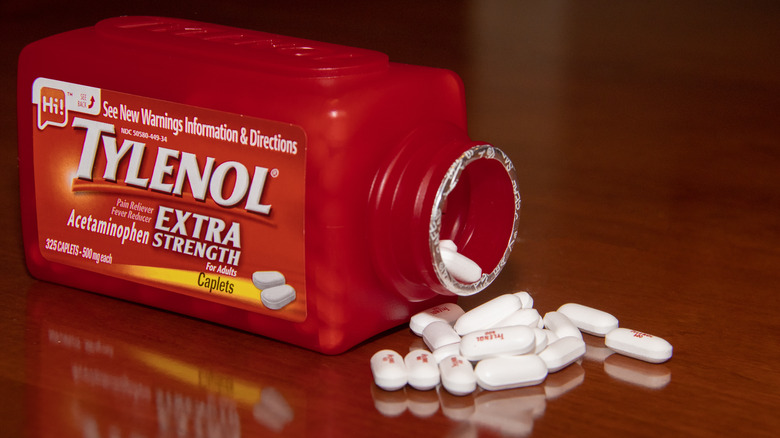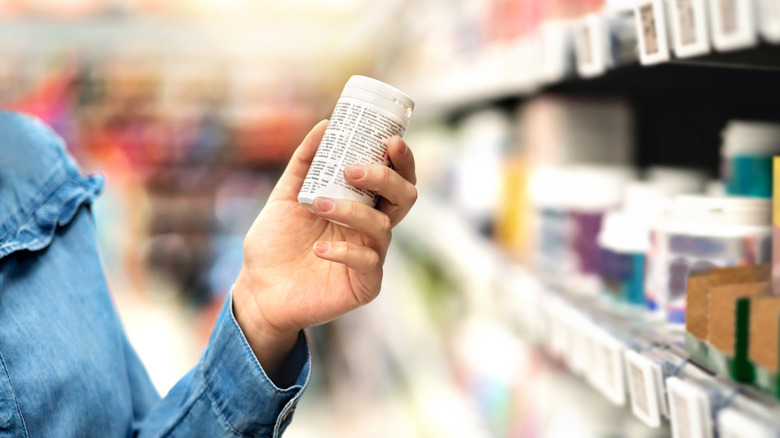What Happens When You Take Too Much Acetaminophen
Acetaminophen, the ingredient most commonly associated with the pain reliever Tylenol, is an over-the-counter drug people often look to when they have common cold or flu symptoms. Experts at Harvard Health note that while billions of people take acetaminophen safely, acetaminophen has also been known to cause people to end up in the emergency room — or worse — due to accidental overdose, either by taking too many of one drug, or by combining the drug with another product that also contains acetaminophen. "People don't realize that these doses all add up, and before you know it you've exceeded the recommended dose of acetaminophen," says Dr. Melisa Lai Becker, instructor in medicine at Harvard Medical School and a specialist in emergency medicine and toxicology at Harvard-affiliated Cambridge Health Alliance.
Compared to other common over-the-counter pain relievers, such as ibuprofen (Advil) and naproxen (Aleve), it is easier to overdose on acetaminophen because it takes a smaller amount. And a dangerous overdose of acetaminophen can lead to severe liver damage – or even death.
Treatment and prevention of acetaminophen overdose
According to WebMD, the antidote for an accidental overdose of acetaminophen is taking N-acetylcysteine (NAC) within eight hours of the overdose. Acetaminophen is metabolized by the liver, and so too much can overwhelm the liver's ability to function properly, leading to liver damage. If given early enough, NAC is known to be successful in mitigating the potential for acute liver failure that is brought on by the ingestion of too much acetaminophen (via Cochrane).
If you accidentally overdose on acetaminophen, you may not feel any symptoms within the first 24 hours. When symptoms do begin to surface, they can include nausea, vomiting, poor appetite, abdominal pain, and confusion. To prevent the possibility of an acetaminophen overdose, WebMD recommends keeping all bottles out of reach of children, following directions for the recommended doses, never mixing medications when both contain acetaminophen, and reading all labels carefully to make sure you are aware of the contents. If you think you or someone in your household may have overdosed on acetaminophen, you should immediately contact a poison control center or 911 for emergency medical services.


